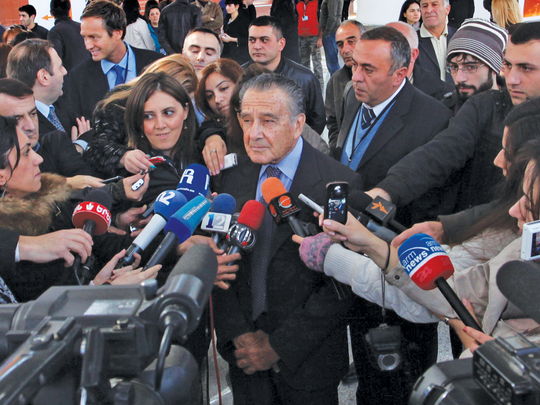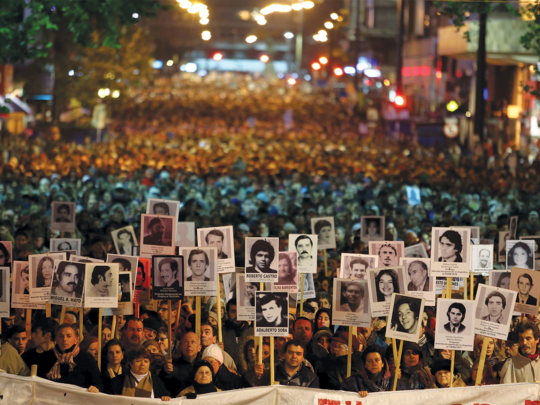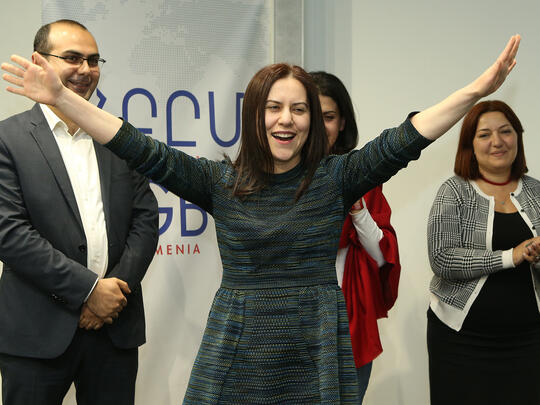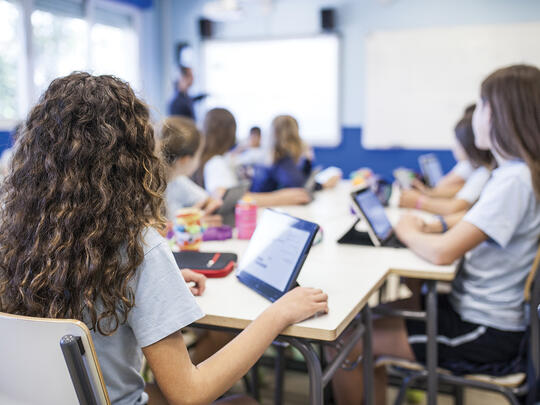The unprecedented upheaval that the novel coronavirus has inflicted around the world has put a colossal weight and strain not only on governments, businesses, healthcare, essential services, and school systems, but also on non-profit organizations of every size, stripe and mission. AGBU, the largest Armenian non-profit in the world with a long history for humanitarian relief, is obviously no exception.
Celebrating its 114th anniversary this past April, the organization has long been on the frontlines of human and natural calamities impacting the Armenian world, from post-genocide dispersions and major earthquakes to economic blockades, wars, financial free-falls, hurricanes, fires and floods. Yet its rapid expansion over many decades is rooted in the succinct motto that speaks to the ethos of AGBU’s founders: In Unity is Strength.
These early leaders were apparently on to something, as variations on the Unity theme in today’s context have proliferated as humanity grapples with one of the most life-altering events in living memory. The crisis demands action, answers, and collective cooperation across many fronts. This includes keeping society emotionally and mentally resilient, which makes stress relief part of any sound crisis management strategy, in addition to helping to save lives and provide material assistance.
Tests of Leadership
“In perilous times like these, many of our Armenian institutions are being challenged to the core,” notes AGBU President Berge Setrakian. “For AGBU, the overarching mission has always been to ensure the ‘prosperity and well being of all Armenians,’ and this pandemic has impacted our communities on both counts.”
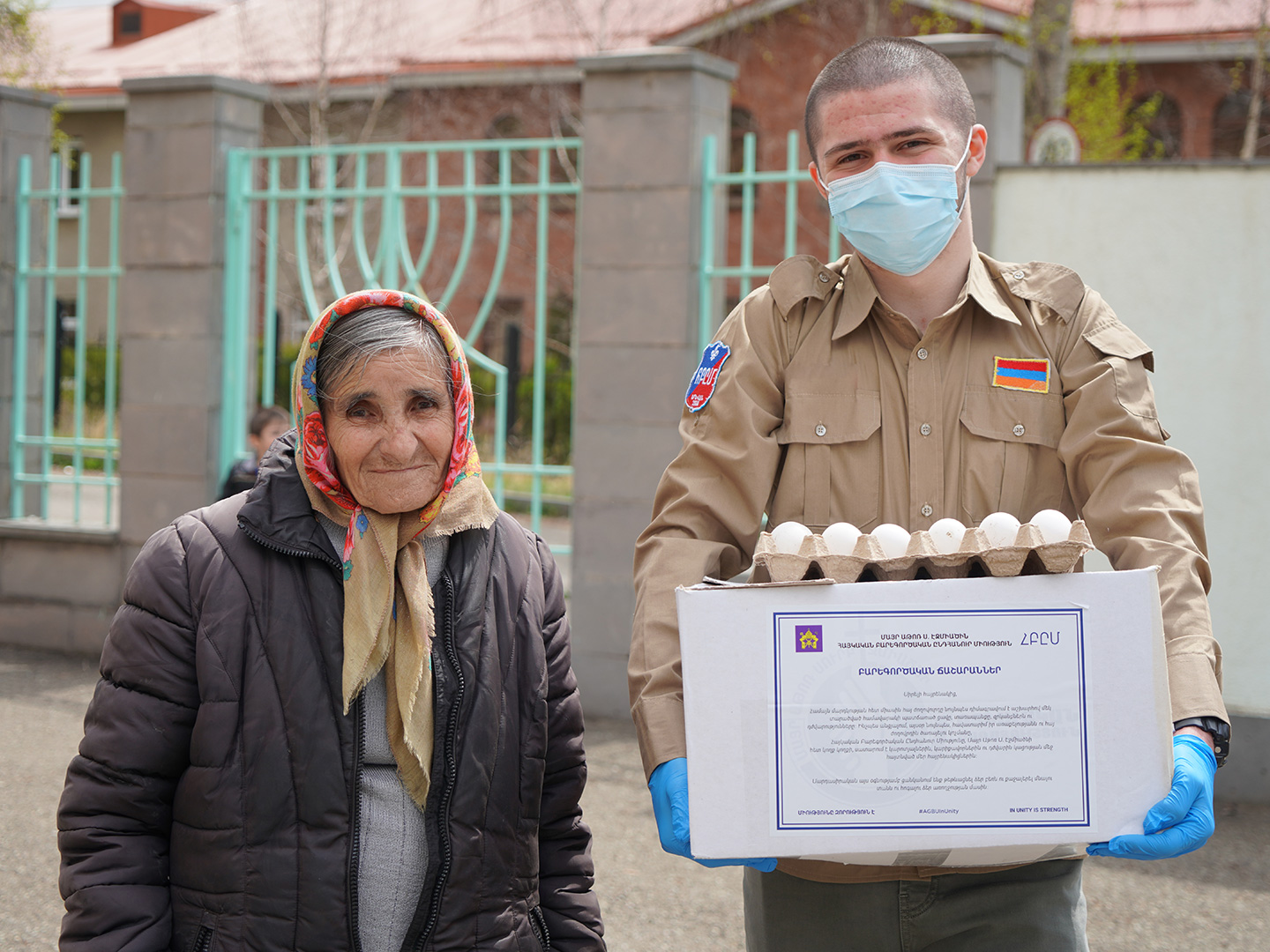
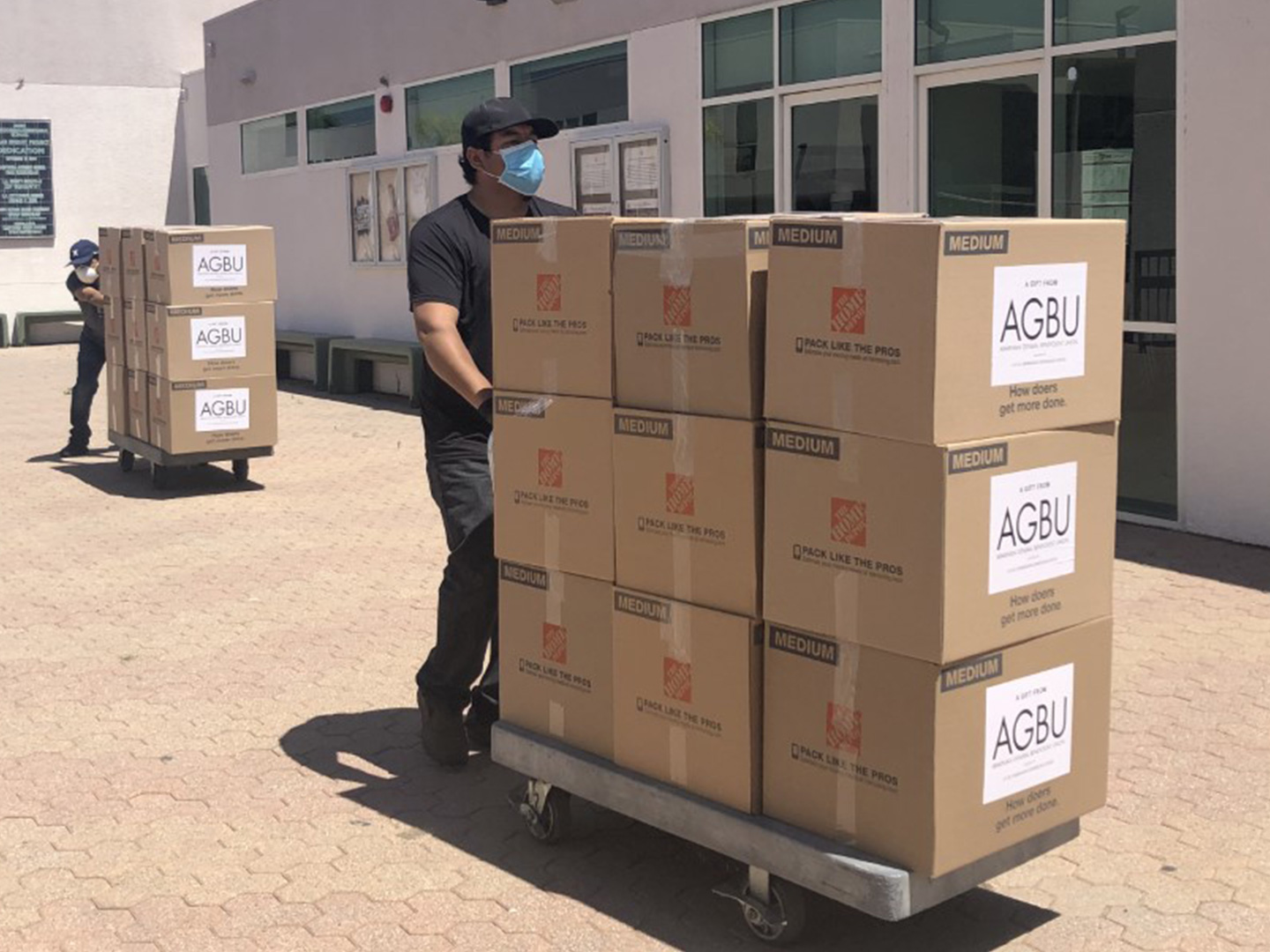
Despite the fraught environment, AGBU is pulling all the levers at its disposal to ease burdens. This means activating its core competencies in new and creative ways—from humanitarian relief and education to culture and socio-economic development. “The needs have intersectional dimensions, because so many aspects of our normal lives have been upended by the virus—the health issues, food insecurity, financial hardships, school disruptions, plus the stresses of lockdowns and widespread uncertainty,” Setrakian observed.
He also noted how the COVID-19 crisis, unlike others that AGBU has stepped up to help manage, has hit Armenians in multiple hotspots concurrently. “Human lives and livelihoods are at stake all at once, but with distinctions, depending on local or national conditions. In Lebanon, you have a public health crisis compounding a widespread economic collapse that was underway to begin with. In Syria, they are battling an invisible enemy while the people are still in trauma from a vicious civil war.” He mentions other hotspots in Armenian communities ordinarily not associated with economic hardship, such as Montreal and Toronto, Sydney, and Los Angeles. “The virus is demographically and geographically neutral, and that’s why it has taken its toll on Armenians of all backgrounds and socio-economic strata.”
Yet Setrakian’s sober assessment of the magnitude of the challenge seems not to rattle him, as he outlined how AGBU has the inherent capacity to rise to it. “Fortun-ately, our global presence and organizational model allow us to unleash the power of our local communities. When all is said and done, solutions to even global crises mostly wind up local.”
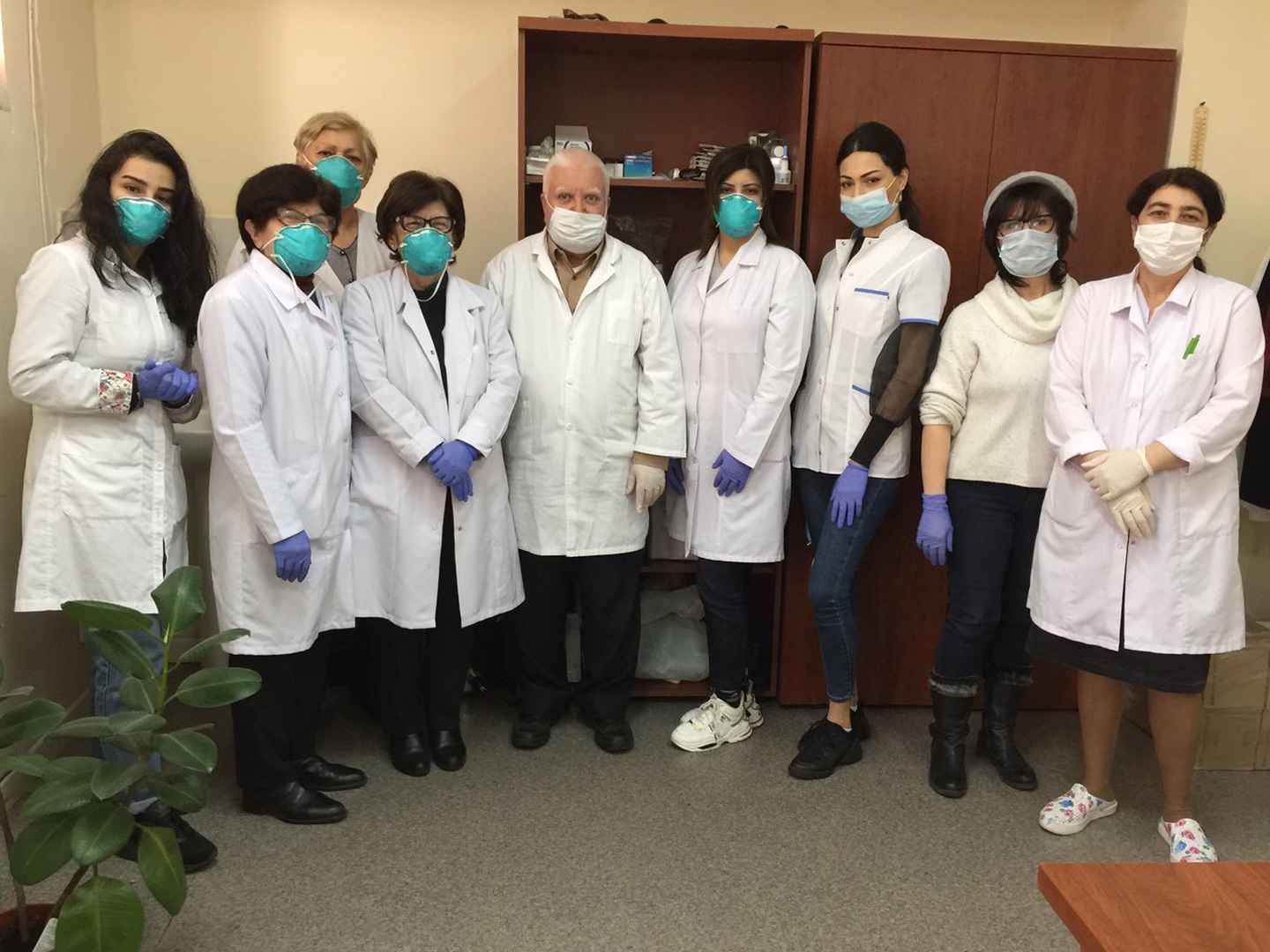
Daunting Decisions
By mid-February, multiple teleconferences among members of the AGBU Central Board were held to address the impact of the pandemic on Armenians across the globe. According to the board’s treasurer Nazareth Festekjian, deciding where to allocate resources to meet escalating needs was further complicated by all the unknowns.
“The what-ifs around this crisis made it impossible to estimate the endgame or best-guess the scope of the fallout. We realized that a separate donor-driven fund dedicated to global emergencies was the best option. This way, we could respond to mass-scale developments in real time but also generate a substantial reserve to cover the aftermath of this crisis or others that might follow.”
Festekjian also spoke to the fine balance between “using the organization’s purchasing power in the short term without derailing ongoing AGBU programs intended for long term improvements in people’s lives.” He cited university students applying for AGBU scholarships, farmers in Artsakh who signed up for AGBU seed loan programs and olive tree cultivation (a project that takes many years to come to fruition), students in AGBU day schools and after schools, and aspiring women entrepreneurs receiving training and grants in Armenia. “These are generational investments made by our donors and benefactors that we are mission-bound to uphold.”
The solution was the launch of the AGBU Global Humanitarian Emergency Relief Fund, mobilized as an international fundraising effort. Anita Anserian, the managing director of the AGBU Central Office in New York, took heart from the outpouring of support from volunteers and donors, old and new. “We are humbled, but not surprised, to see so many Armenians reaching out to help in this devastating crisis. Many are also struggling under this dark cloud of uncertainty, yet they still care about those most vulnerable. There are so many everyday heroes that this pandemic is revealing to the world, and we have our share of them across our network—from supporters and staff to the leadership working 24/7 to coordinate logistics and put strategies into motion on the ground.”
Health and Safety First
From the Middle East, Armenia and Australia to North and South America, the first line of defense against the pandemic is ensuring that everyday needs are met. Just as food pantries and meal distribution programs are popping up across communities, the heart and soul of such operations is typically the non-governmental sector. As such, AGBU is doing its share of heavy lifting, both at the strategic level and community-by-community, to assist families facing economic or physical hardships.
It all began with Lebanon, due to the evisceration of its economy earlier in the year. As Armenians began to experience restrictions on cash access and faced unemployment or business shortfalls, AGBU Lebanon took action, establishing a process for addressing the growing food shortages efficiently and equitably.
Gerard Tufenkjian, the president of AGBU Lebanon, recounted, “We had a head start in ascertaining the priorities and needs of the people, and figuring out the logistics down to what types of contents to include in each aid package, from nourishing staples to cleaning and hygiene supplies. Many of our recipients who never thought they would need such assistance were grateful for the extra help.”
Chapter Mobilization
As coronavirus outbreaks spread across the world, AGBU chapters took their cues from the Lebanon experience, with modifications such as which segments of society to prioritize. For example, AGBU Montreal reached out first to the elderly and Syrian Armenian refugees starting with the delivery of 200 boxes for Easter, which has grown to 500 boxes at a time. Toronto recently announced a similar program, committing to 500 boxes to start, partnering with a packing and distribution company for maximum efficiency and coverage.
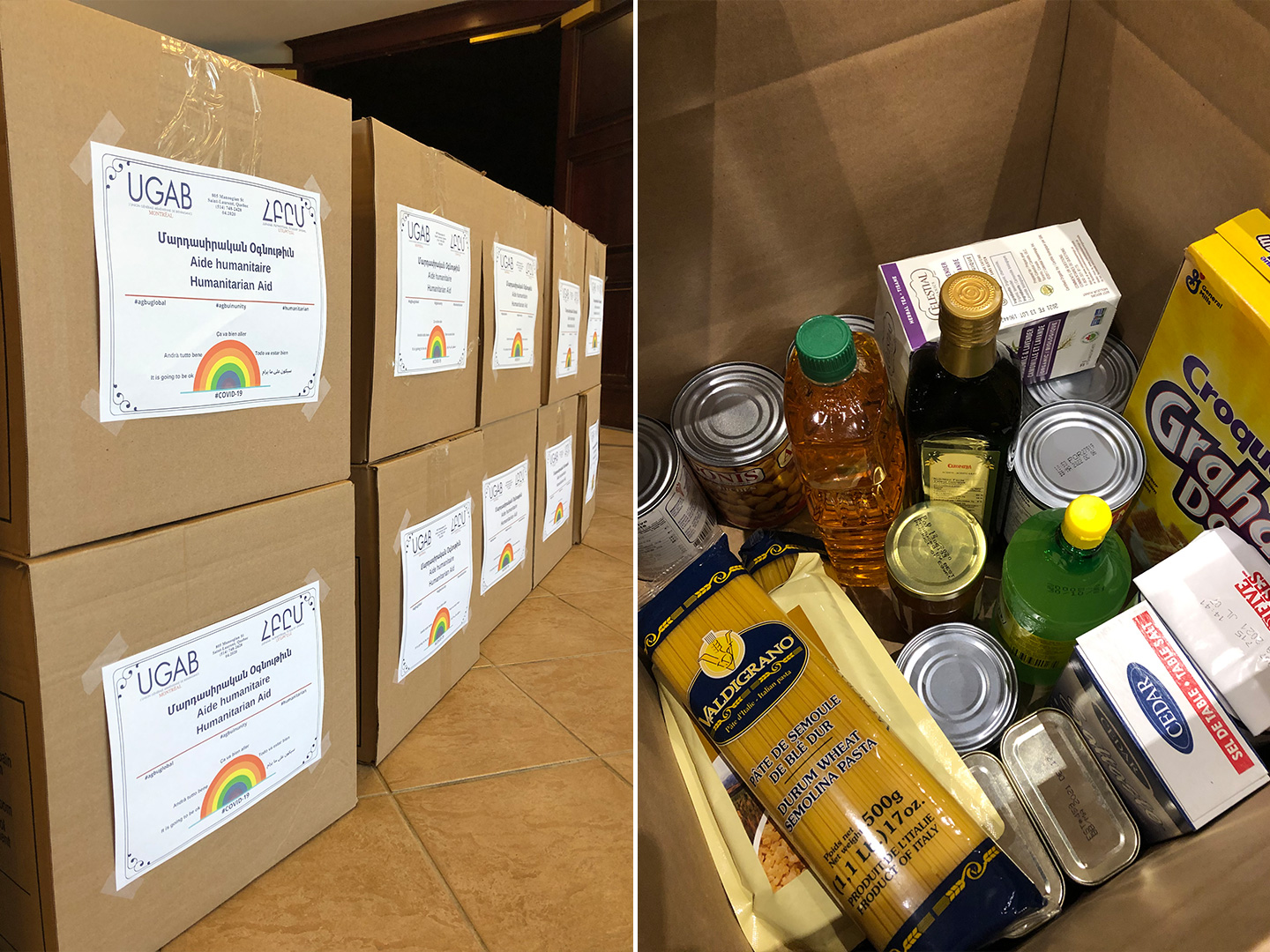
In the meantime, the AGBU LA Cares program in Los Angeles widened its reach to anyone in need in their community. The first day of operations saw 100 boxes reserved in mere hours and the requests have continued to mount. The local team has committed to start with at least 1,000 packages. AGBU Latakia and Kamishli in Syria provided disinfecting supplies that were in high demand and, recently, the AGBU District Committee of Syria made plans to cover the meals and medication expenses of needy Armenians in key cities across the country, starting in July through 2020.
In Montevideo, Uruguay, AGBU joined a coalition of Armenian organizations in distributing food packages, while also adding a personal touch by including homemade dishes prepared by local volunteers.
There are so many everyday heroes that this pandemic is revealing to the world, and we have our share of them across our network—from donors, volunteers and staff to the leadership working 24/7 to coordinate logistics and put strategies into motion on the ground.
“We are immensely proud of how our communities have gone above and beyond to ensure that their fellow Armenians and neighbors aren’t facing food insecurity. In some cases, these relief efforts have been a true lifeline for families,” commented Anserian, who is in contact with the worldwide chapter network on a regular basis.
Stepping Up in Armenia
While the leadership of Armenia and its Ministry of Health have legislated many life-saving and safety-net measures for all sectors of its citizenry, Vasken Yacoubian, AGBU Central Board member and president of AGBU Armenia, explains how the organization is filling gaps with initiatives of its own.“Our food package distribution program is putting seniors and poverty-level families first, because COVID-19 puts them in the greatest jeopardy health-wise.” Working with the Mother See of Holy Etchmiadzin, AGBU Armenia had in the first month distributed food boxes to some 900 senior citizens that frequent the church-managed senior dining centers in Yerevan, Etchmiadzin and Vanadzor. The contents are meant to last a month, including essential foods and hygiene products. The effort is intended to continue for as long as the adverse impacts of the pandemic last.
Among the seniors, Azaduhi Hovhann-isyan, 84, is a widow and pensioner who lives alone in a small, self-made hut in the bordering 7th microdistrict of Nor Nork, Yerevan. She survives on a small monthly pension of 44,000 drams ($92 USD). As a result, she has been a regular at the local dining center since 2010. With the disruption to this routine due to the virus outbreak, Hovhannisyan’s life-line was at stake. “Thanks to these AGBU food boxes, I don’t have to worry about having nourishing food on the table. I know the kitchen is still there for me, and they will even deliver to my doorstep if need be,” she explains.
Another vulnerable group is none other than Armenia’s health workers who, like their counterparts across continents, are putting their lives on the line to treat coronavirus patients. To help ensure their safety, AGBU added $50,000 to the more than half a million dollars raised by Armenia’s Office of the High Commissioner for Diaspora Affairs to purchase much-needed personal protective equipment (PPE) and other vital medical supplies from outside sources. “We also contacted the Ministry of Health to see how we could use our extensive network to identify credible suppliers, and then help the government secure their shipment,” Yacoubian added.
Home-Schooling
Perhaps no other sector of AGBU constituents was as dramatically impacted as AGBU day schools, with school faculty, parents and most importantly students, accustomed to formal classroom settings, making the transition to online practically overnight.

“As we all stay home to stay safe, and find our homes turning into classrooms, our fearless leaders in education have one of the hardest battles during these uncertain times,” notes Natalie Gabrelian, director of AGBU Education. “We are so proud of all the efforts put forth by our schools to ensure our students continue to receive the education they deserve through remote learning.” In addition to the many popular video conferencing and online education platforms in use for core curriculum, AGBU schools kept up with their Armenian Studies with an array of virtual tools, including AGBU’s Alternative Education offerings, like the ATLAS digital library, AVC’s online courses and eBooks, AGBU WebTalks videos, and four educational apps.
“As an educational institution, our focus has been on ensuring that all students continue to receive a high-quality education,” explains Arpi Avanesian, principal of the AGBU Manoogian-Demirdjian School in Canoga Park, CA. “Many top educators in our country are referring to this quick move to online learning as ‘crisis education.’ While there is no perfect solution to remote learning, we are doing our due diligence to provide the best possible education during this time. We are consistently reviewing feedback from teachers, students, and families to adjust and create a balanced education.”
Adopting new technologies for the classrooms was once seen as somewhat of a luxury, which depended on funding and staff training. Now, there is no turning back. Schools are realizing that it is critical to not only educate but also prepare students and teachers to incorporate more electronic tools and resources in the classrooms. “This crisis has truly highlighted the importance of technological literacy as a critical piece of this puzzle,” says Dr. Natalie Berberian, the school’s director of Curriculum, Instruction, and Innovation.
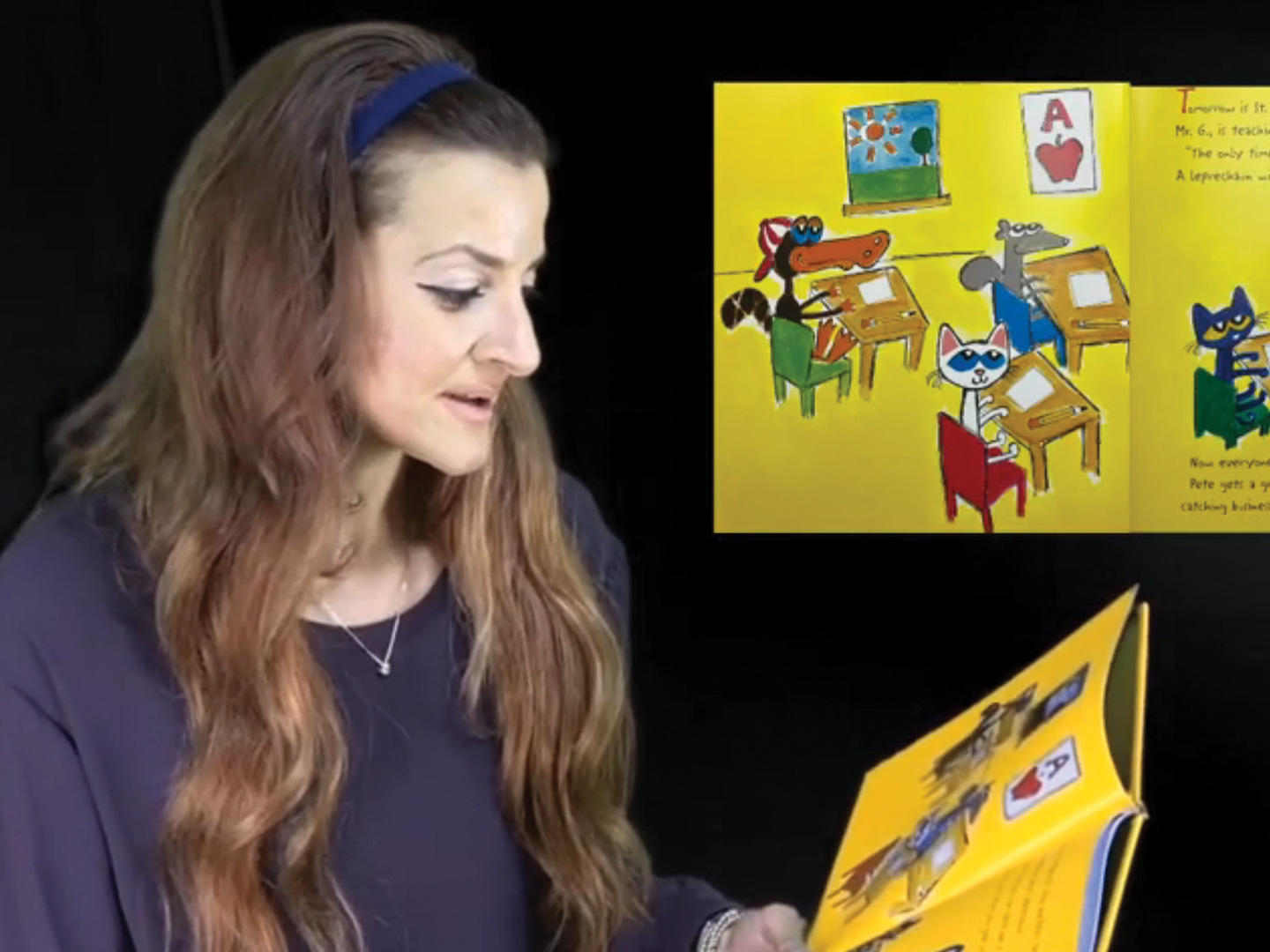
“By observing my daughter’s online sessions—her interactions and work in general—I noticed her enthusiasm to participate and engage in the online sessions. The methods and approaches motivated the students to give their very best,” describes Rita Aprahamian, a parent and teacher at AGBU schools in Lebanon. During the current academic year—even before the onset of the pandemic—Lebanese schools suffered from intermittent and compulsory closures caused by the current political and financial situation in the country. Therefore, when the pandemic hit, AGBU Schools in Lebanon were ready and had a plan to switch to online teaching and learning quickly—in fact, they were one of the first in Lebanon to do so. “The fact that our teachers were already using a large portfolio of digital tools facilitated this switch immensely,” says Ara Vassilian, the general director.
Virtual Learning
Due to the COVID-19 pandemic, the adoption of virtual education has become very popular around the globe. The social adaptation to lockdowns is thought by many futurists to be the lead-up to the sea-change transformation of remote learning that was already on the horizon, with students and other stay-ins coping with loss of structure and continuity gravitating to online education courses.

AGBU’s Armenian Virtual College (AVC) responded instantly by leveraging its decade long experience to support Armenian students and adults around the globe. “AGBU had a remarkable vision to commit to virtual education long ago. Today, this unfortunate crisis compelled AVC to further expand its immersive offerings and capacity to meet the educational needs in Armenia and diaspora,” said Dr. Yervant Zorian, AGBU Central Board member and the founding president of AVC. In addition to its existing online courses, which saw a threefold increase in enrollment, AVC launched a free specially packaged “Learning Zone,” offering 20 days of themed activities, complete with virtual tours, and daily meetups.
Addressing the needs of educators and students in Armenia, the RA Ministry of Education, Science, Culture, and Sports launched multiple initiatives with the National Center of Educational Tech-nologies. AGBU AVC experts were invited to contribute with their e-learning know-how, experience, and resources to several strategic discussions and consulting forums on virtual education, such as the RA parliamentary hearings, where Zorian was invited to present his vision on the trends and solutions in virtual education.
YP Ingenuity and Initiative
When a full calendar of upcoming AGBU in-person events—the glue of Armenian communities around the world—were forced to be cancelled or postponed indefinitely, it wasn’t long before the Zoom web video conferencing platform filled the vacuum as a virtual community center, attracting hundreds of participants at a time. This was especially the case with AGBU Young Professionals (YPs), younger working adults who abruptly found campus and office life, gyms, clubs and sporting events, happy hours and house parties off limits. “Our YPs immediately put their natural digital prowess into action without missing a beat,” explains Heghine Musaelyan, who coordinates the 37 YP groups worldwide. “They are now offering free entertaining and instructive content, as well as a platform for social interaction, all under the banner of YP Live.”
The idea came to fruition during a virtual meeting among YP LA co-chairs Tenny Kachatourian and Carin Kellzi and Communications chair Rita Chakrian. They decided to orchestrate a virtual event they had long wished for: a global talent show. The instant success of the premier episode “YPs Got Talent” launched on March 28th fast became a weekly event. It also encouraged groups like YP United Arab Emirates, YP Boston, YP Buenos Aires, YP Houston and others to host episodes, giving their friends and family members the chance to connect through mood-lifting shows as well as informative well-being sessions.
The variety of content quickly attracted diverse audiences from locations as far as New Zealand, South Korea and Russia. From Armenian cooking classes hosted by YP Madrid to a live comedy show hosted by YP Northern California and Toronto featuring comics from all over the world, YP Live has garnered over 1200 avid participants to date with new log ins increasing by the week.

YPs also hosted an informative session on how to navigate the effects of the pandemic. Episode 7 “Navigating COVID-19, Empower Your Well-being” featured Rita Hovakimian, Business Coach and Prosperity Mentor and Founder of Inspiring Success. “I was pleased to teach participants how to cultivate an empowering mindset that will provide steadiness and calm as we navigate the uncertainty of this time,” she remarked.
Also on the panel of experts was Katrina Carter, a certified health coach. As a non-Armenian, Carter commented on the experience, saying, “I was glad to join the YP Live event and share insights on wellness, staying active, eating healthy, and especially focusing on natural ways to boost immunity during this time.”
The very spirit of the #AGBUInUnity efforts that inspired this series will continue as long as the quarantine lasts in communities across the network. Proud YP UAE Chairwoman Arina Maljian put it best: “No matter the situation we are in, our Armenian community will always stay connected and share its talents in hopes of helping each other grow.”
Next Best Options
AGBU has always considered its Global Leadership Program (formerly known as the AGBU Summer Internship Program) as an extension of education as it prepares undergraduate students for the real world of work while cultivating a giving-back mentality through leadership experiences. “Under normal circumstances, we would be welcoming our incoming cohorts in capital cities like New York, Boston, Buenos Aires, London and Yerevan. Now, the reopening of these bustling centers of commerce will be slower,” said Gayane Manukyan, who manages the program.
She described how the department was just about to inform the accepted candidates that there would be no program this summer, when it occurred to them that another highly successful YP initiative—namely one-on-one industry-specific mentorships—could be conducted online. “Now we are working with YPs in those same cities to provide this year’s cohorts with individualized mentoring sessions. We are also adding group skill-building workshops and other career-centric opportunities in digital format,” Manukyan noted.

Looking ahead to the summer months, AGBU Camp Nubar was also faced with a critical decision: whether to skip this year completely or create a virtual option that would provide campers with some measure of continuity. The latter was chosen and AGBU Camp Nubar Virtual Camp was announced in early May.
Alexis Krolian, the camp director, released a video message, saying, “We have that Camp Nubar spirit in our hearts and even though we can’t all be there together, we’re going to make the best of the situation.” She went on to say that while it’s not going to take the place of being together physically, the campers would get to connect with past and present counselors and, as they stay safe at home, they would learn new skills with online dance and baking classes, coaching tips for running, basketball, and DJ mixing, as well as team-bonding activities plus other fun virtual experiences.
Cultural Healing
Just a few months ago, Hayk Arsenyan, the director of AGBU Performing Arts Department (PAD), was lining up concerts and film screenings in three-dimensional spaces or arranging multi-city tours in metro areas. “Now, we are bringing masterful musical performances directly to desktop and handheld devices, broadcast from the homes of the artists. This allows us to waive all admission fees and widens our audience capacity many times over,” Arsenyan reports.
Some of the performers featured in the PAD live stream series since its launch include Miqayel Voskanyan and Arto Tunçboyaciyan, with a joint performance by the AGBU LA and Montevideo Choirs lined up next. In addition, feature and short films have been screened online, including such annual favorites as Six Short Films by Armenian filmmakers, a new online series called Movie Mondays, and Meet the Artist live stream interviews with musicians and other celebrated talents from across the Armenian world.
Another example of technology to the rescue are the AGBU Children’s Centers in Armenia. Teachers offered live stream classes and videos that engaged students through the arts. “Offering activities that help children process their emotions, such as music, dance and visual arts, is vital in these traumatic situations to which children are potentially exposed,” Meline Arakelyan, the choreographer of the Mother See of Holy Etchmiadzin and the AGBU Nork Children’s Center.
A Salute to Scouts
The younger generation has also played a vital role with its own initiatives, a clear indication of future leaders coming into their own. For example, the AGBU-AYA San Fernando Valley Scouts raised substantial funds to order and deliver meals for healthcare professionals on extended shifts.
“In the true scouting spirit, our troop raised funds for meals to support our local hospital ER personnel, in coordination with the hospital administration,” recounted Hrag Ohannessian, the chair of the AGBU San Fernando Valley chapter. “Also, as a sign of additional community support, we purchased and delivered the meals from small local restaurants to support small businesses in their time of need,” Ohannessian added.

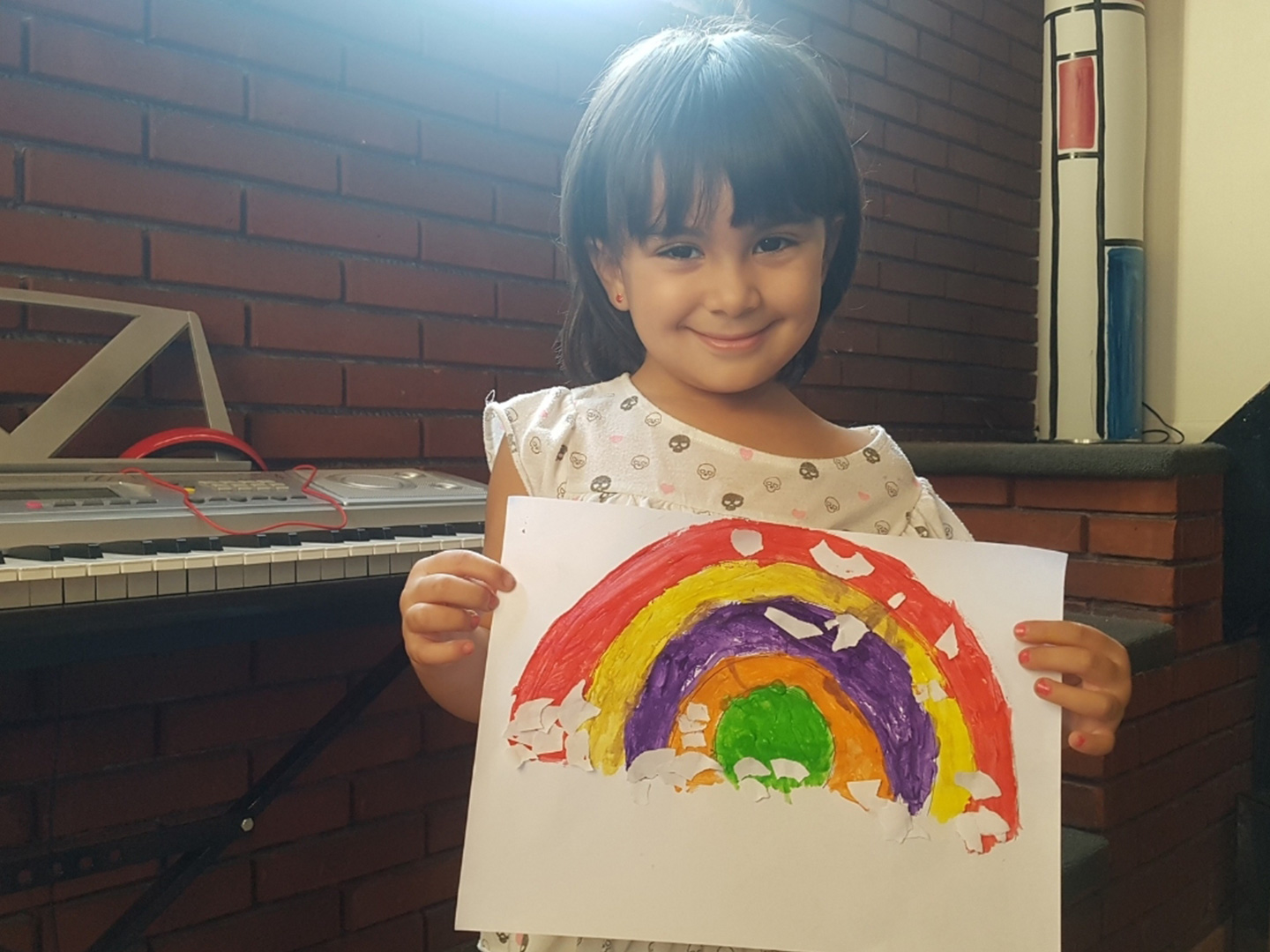
In the meantime, in Armenia, while all scouting events were put on hold for the duration of the state of emergency, this did not prevent the AGBU-AYA Antranik Sevan Scouts Movement from venturing out as essential volunteers to assist the elderly in picking up their food boxes containing nourishing basics and other staples.
“The AGBU Scouts have a sacred mission to help those in need in Armenia, so throughout the year we organize clothing drives, food drives, and other charitable events. Throughout the lockdown, the scouts were trying to figure out a way to provide food to people in need, and we were fortunate enough that AGBU Armenia was already working on a solution,” said Saro Tatios, the chief scout executive of the AGBU Scouts of Armenia. “On a side note, faced with the realities of a humanitarian crisis, these teens are being pushed to grow up faster and learn on the job what leadership and citizenship are all about,” Tatios remarked.
Looking Ahead
As of May 2020, when this magazine went to press, uncertainty persisted.
“So far we have lost too many wonderful people in our community to this disease. We are aware that many of us are still reeling from this pandemic financially and are stressed out emotionally,” Setrakian reflected. Then, looking to the time when this plight would be behind us, he said, “This global crisis for which we have shared the burdens and worked to overcome as one Armenian nation will inevitably bring us closer as a people.”
This global crisis for which we have shared the burdens and worked to overcome as one Armenian nation will inevitably bring us closer as a people.
For all the brave souls, inspired minds and giving hearts that rose to the challenge during this time of COVID-19, there will be many compelling stories of resilience, compassion, and generosity to fill new chapters in AGBU’s illustrative history. This will undoubtedly assure its place as a trusted player in the crisis management space, with the power of unity leading the way.


